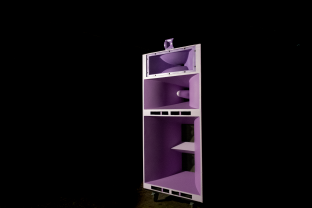Spiking will remain "invisible crime" without action from both police and venues, report finds
"The focus must be on communicating to perpetrators that it is illegal and unacceptable"

Spiking will remain an "invisible crime" unless without efforts from the nightlife industry, venues and police to tackle the epidemic, a new report claims.
An inquiry into spiking by the Home Affairs Committee found that "nine in ten victims did not receive support” after they got spiked.
The report labelled spiking as a “heinous crime” that venues, organisers and police must take more action to prevent — and that a "belief that police won't do anything" often harms victims.
The findings also suggest that spiking is "widespread and dangerous". MPs involved urge the Home Office to make spiking a criminal offence by law - clarifying that while this won't stop it, it can act as a deterrent.
Read this next: We need to end sexism, misogyny and violence in dance music
Some victims of spiking reported feeling as though they have had their concerns ignored by staff at venues and often feel dismissed.
The parliamentary inquiry was originally launched in late 2021 following a visible increase in incidents of drink spiking and alleged needle spiking incidents.
The committee put out a survey that victims and witnesses of spiking could fill out. Some 1,895 victims and 1,413 witnesses of spiking incidents responded.
Of the survey respondents, 355 victims had been spiked twice, 76 three times, 17 four times and 21 on five or more occasions; The National Police Chiefs’ Council reported 1,032 cases of needle injection occurrences between September and December 2021.
Read this next: AFEM launches music industry Code of Conduct against sexual harassment and gender discrimination
Improvement suggestions given by MPs include more support for victims, more practical action from the police by taking forensic samples quickly and raising overall awareness around support systems in place.
A legal change is imperative, the findings report states: "The creation of a new spiking criminal offence, currently under consideration by the Government, would help improve the response to incidents and effectiveness of prevention strategies"
Read this next: The Warehouse Project is offering on-site urine tests to check for spiking
Venues where instances of spiking are more prevalent, such as pubs and clubs, are being urged to take a more active approach to being safe spaces for their customers. 3,907 of 4,506 (87%) survey respondents reported a spiking incident taking place in a nightclub or pub.
Part of this involves stricter licensing penalties from administrative bodies, including making mandatory improvement requirements to venues with a bad track record of spiking in order to get their licence renewed.
Read this next: Undercover cops are not the answer: Nightclubs need to do more to protect women
Chair of the Home Affairs Committee, Dame Diana Johnson said: "Spiking is an insidious act. Victims will often have little idea of what has happened, who spiked them, when it occurred or what has been put in their system. They are left with feelings of self-doubt and vulnerability. Yet, while the threat is well known, little has been done to prevent it from happening.
“There needs to be a concerted effort to stamp out spiking. Much more work needs to be done to improve understanding and awareness so that people are reassured that the help will be there should they need it. They need to know that they will be taken seriously and action is taken.
“It isn’t good enough to tell people to put lids on their drinks or normalise taking a testing kit out with you. Everyone should have the right to go out and enjoy themselves without fear. The message needs to be sent to perpetrators that spiking is absolutely unacceptable and will be punished."
Read this next: It's time for clubs to start taking spiking seriously
Adding to this, Michael Kill of the Night-Time Industries Association says: “We note the Committee’s comments about some victims feeling they have been treated dismissively by venue staff – we are clear that this is wrong and stand ready to work with the Government on improving people’s experience when they are reporting these crimes.
"One thing we have consistently emphasised is the role the shortage of door staff is playing in the crisis. We would be grateful for more engagement from the Home Office on door staff recruitment, in particular the recruitment of more women - who currently make up only 10% of staff – which we believe would help with some of the problems highlighted by the Committee."
You can read the full report here. The Home Affairs Committee has also released a video about spiking, you can watch it below.
Today we have published our report on #Spiking
— Home Affairs Committee (@CommonsHomeAffs) April 26, 2022
Find out more about Spiking and our inquiry in this video
Read our report here:https://t.co/bLtrTa7NVU
Find out more here https://t.co/j13lsSYcMD pic.twitter.com/9pDBm6pNN6
Read this next: A&E departments often don't test potential spiking victims
Aneesa Ahmed is Mixmag's Digital Intern, follow her on Twitter

Mixmag will use the information you provide to send you the Mixmag newsletter using Mailchimp as our marketing platform. You can change your mind at any time by clicking the unsubscribe link in the footer of any email you receive from us. By clicking sign me up you agree that we may process your information in accordance with our privacy policy. Learn more about Mailchimp's privacy practices here.

 SHERELLE releases surprise debut album 'WITH A VENGEANCE'
SHERELLE releases surprise debut album 'WITH A VENGEANCE'





